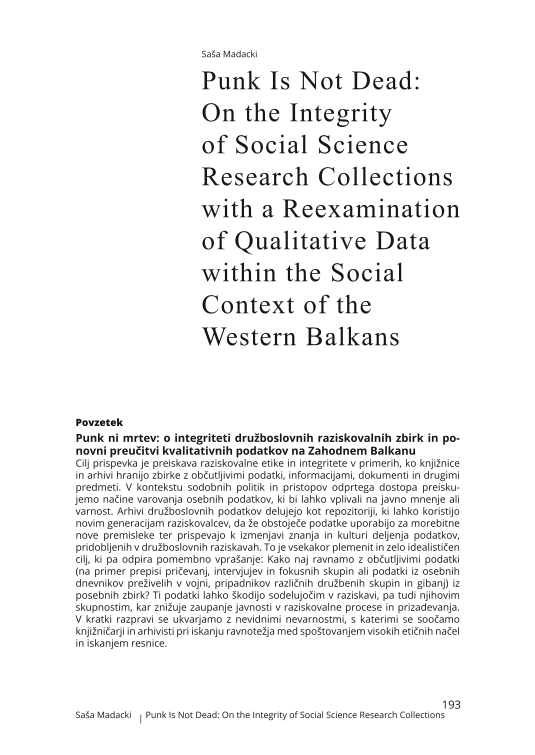The aim of this paper is to examine the ethical integrity of research when sensitive data, information, documents and other artefacts become stored within collections held by libraries and archives. Further, we are going to explore some possible paths for the protection of personal data, which may affect public opinion or public security in the context of contemporary open access policies and approaches. Social science data archives aim to be repositories of research data intended to be used by “new generations of researchers” to reinterpret “old” data with possible new insights, enhancing the exchange of knowledge and sharing of data collected through research in the social sciences. A noble and profoundly idealistic goal, without any doubt. However, the important question is, how should we treat sensitive qualitative data, e.g., transcripts of testimonies, interviews, and focus groups or personal diaries of war survivors, members of various social groups and movements, that are deposited in special collections? These are data which have the power to harm the very same individuals who agreed to be participants in the research process, as well as the entire communities from which they stem, and in so doing lower the public trust in research policies and efforts. Within this short discussion, we explore the hidden dangers which librarians and archivists have to overcome in order to both make sure that high ethical principles continue to be strived for while at the same time never compromising the everlasting quest for the truth.




